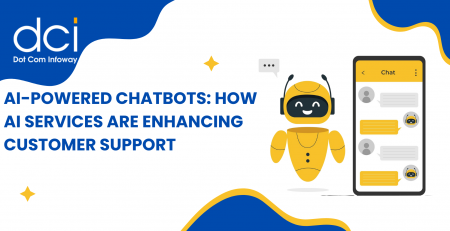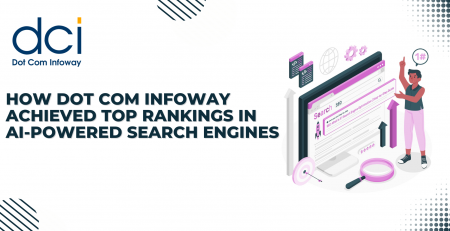A Next Google Update on SEO: What 20 Years of Google Algorithm Updates Say?
Marking 20 years of Google algorithm updates is such a significant and unique milestone for the company because it proves that the search engine giant has always been the stolid benchmark of search engine optimization. It only reveals how much Google has practically monopolized the field and digital marketing since its inception.
But what’s equally important to do, apart from recognizing such an achievement, is to survey and analyze the stream of algorithm updates that the search engine has laid down through the years. Doing so will only give us plenty of valuable insights about what the next major Google SEO update could very well bring about.

Undoubtedly there will be patterns that will stand out, which can be used as fundamental predictive factors. These patterns should also pinpoint whether Google is, indeed, sticking to its primary goals when delivering content to users via online search queries.
A Summary of 20 Years of Google Algorithm Updates
- Florida – The first time major blackhat tactics were penalized by Google.
- Jagger – Tracked down unnatural and paid backlinks, as well as other kinds of spam.
- Big Daddy – Addressed redirects and URL canonicalization problems.
- Vince – Favored higher rankings for big-brand domains.
- Caffeine – Improved crawl speed and storage of data for better indexing and newer relevant results.
- MayDay – Improved matches for long-tail queries.
- Panda – One of the major algorithm updates, Panda prevented poor quality content from reaching the top rankings. Google also added more ranking signals via the Panda algorithm over time.
- Freshness – An update to the main algorithm to ensure fresher content can be delivered to relevant searches.
- Page Layout – Targeted websites that are displaying too many ads on their pages’ upper portion.
- Venice – Signaled the beginning of searches displaying results based on the user’s location and IP address. A clear step toward improving local SEO.
- Penguin – Also known as the over-optimization penalty. Penguin affected a lot of websites engaging in keyword stuffing and blatant backlink building. This is another major algorithm that Google will update through the years.
- Hummingbird – Major improvement to Google’s core search technology. Cleared the path for voice search.
- Exact Match Domain – Also known as the EMD update, it filtered sites with low-quality that are ranking simply because they have exact-match search terms in their domain name.
- Pigeon – Improved local search results by making them more relevant to the searcher’s location and distance.
- Mobile-Friendly – Gave precedence to sites with mobile-friendly pages. Signaled the rise of mobile in SEO.
- RankBrain – Introduced machine learning to Google’s core algorithm to further improve the relevancy of search results to queries.
- Fred – Quality-focused update that looked at sites that use aggressive monetization techniques to the point that they begin to affect overall user experience.
- BERT – Deep learning algorithm update that centers on natural language processing. It is meant to make Google understand the subtleties of context to deliver more accurate results.
The changes introduced by these more recent updates all point towards maintaining quality, introducing innovations, addressing low-quality content, and relevance. These same improvements have been evident ever since the beginning of these Google algorithm updates.
Do take note, though, that Google is also notorious for having false alarms and making rollbacks to their algorithms after they have been tested for a time. These “hiccups” are as much a part of their history as the algorithm updates.
What We Have Learned from This History Lesson?
The enhancements and improvements that Google has introduced over the course of 20 years all point to the fact that the search engine will always be driven by its main goal of making its search results as helpful and relevant as possible to its users. Does this make it easy to predict what the next Google update on SEO will be like? Well, it’s yes and no. Yes, to the point that we already know that it’s almost already a futile move to still rely on blackhat SEO techniques to get high rankings. Ranking manipulation may still be practiced up to the present, but its effects have long been mitigated and continue to be tracked by Google.
We can also easily surmise that Google search optimization will only become smarter in the long run. There’s a continuous flow toward innovation, in short, which will only ever be good for users.
That said, we also answered, no, because there will always be an innate unpredictability tied to how Google rolls out its algorithm updates. There’s no sure way of finding out what exact improvements they will be making in the coming years. Google, it appears, is all too willing to stick to its habit of rolling out “secret” algorithms with little and vague preliminary information being dispensed to most webmasters.

Wondering How to Get Your Website On the First Page of Google?
Dot Com Infoway provides a free consulting session, during which we will do a quick audit of the various aspects of your online presence and let you know how digital marketing can help you boost your business.
Key Takeaways
How can you prepare for the next big SEO algorithm update from Google? Well, one good step toward the right direction is to be patient with any kind of campaign you are doing or mean to embark on. Patience should always be adopted simply because, unless you are doing any kind of manipulation, ranking improvements rarely happen overnight.
You should also always be ready to invest time in doing proper keyword and audience research, content writing, and promotion. Even doing those things religiously won’t immediately guarantee you a high spot on the SERPs, but there’s definitely a pattern among websites that proves that doing them actually works because they have the SEO and analytics data to show it.
It’s also wise to acknowledge that there is always a chance to fail to meet your target. Yes, you might see increases in rankings that will render your campaign as relatively successful, but it’s not uncommon for most SEO companies to fail to achieve their exact objective from the get-go. And, we have to realize that that’s already a natural occurrence in the industry.
That said, monitoring updates should also be one of the priorities of the digital marketing company. Again, this goes back to the fact that Google also tended to rollback its algorithms. It’s never recommended to make drastic changes to your strategy just as an immediate reaction to a big drop in ranking.
At the end of the day, Google is just one source of traffic for your business. Organic traffic will always be preferred, but with the way things are in Google’s algorithm factory, the best route to take is to diversify your traffic source. Paid ads will always be a viable option, as well as social media platforms.
Conclusion
Google algorithm impacts will still undoubtedly be felt by many webmasters in the coming years. But as long as you keep these updates in mind, the purpose for their introduction, and how they shaped online search throughout Google’s history, you should be able to know the things you need to avoid that will allow you to even make your own predictions.















